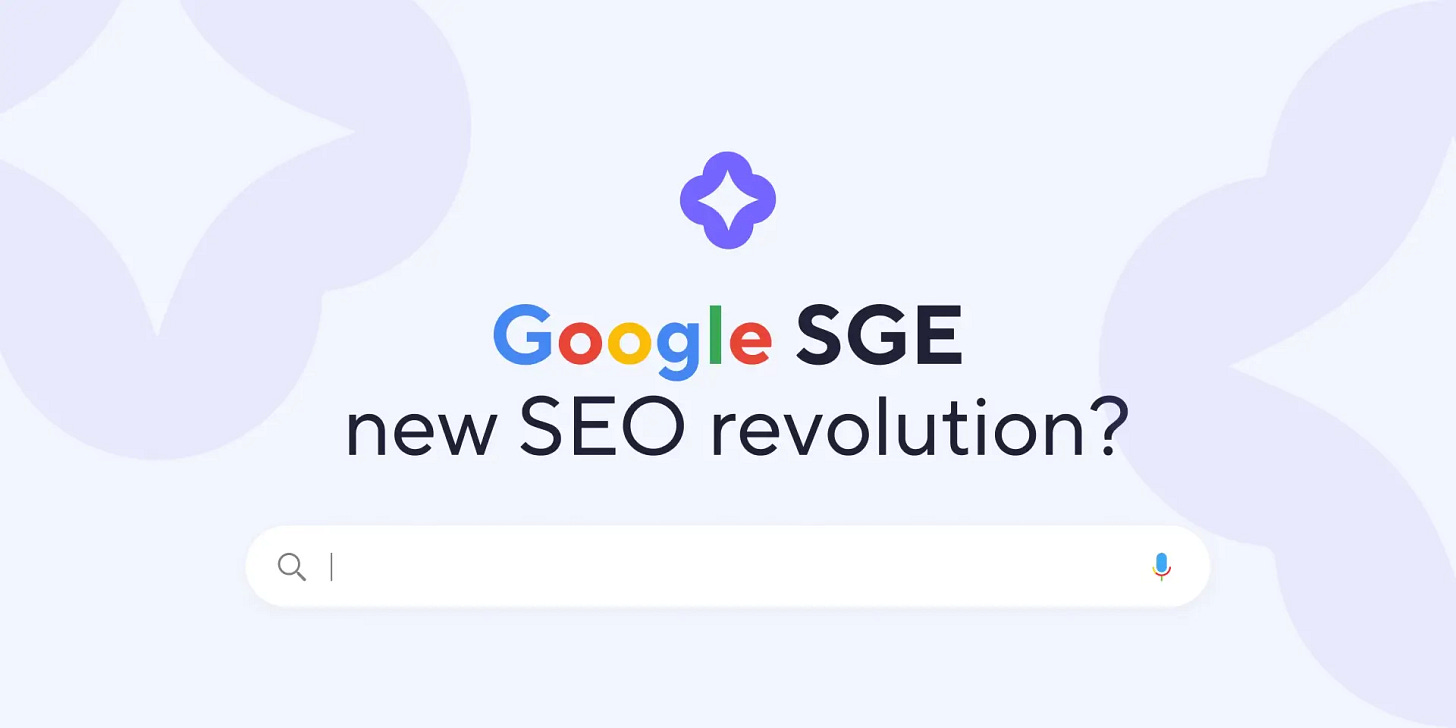In 2025, SEO professionals are facing one of the most significant shifts in search behavior and strategy since the inception of search engines: the rise of Google's Search Generative Experience (SGE). As part of Google's ongoing effort to enhance search using artificial intelligence, SGE integrates AI-generated content directly into the search results, fundamentally changing how users find and consume information online.
What is Google's Search Generative Experience (SGE)?
SGE is Google's AI-powered search feature that provides synthesized answers and summaries at the top of search engine results pages (SERPs). Rather than listing links to individual pages, SGE pulls from multiple sources and uses AI to create a single, cohesive response to a user's query.
These results are often displayed in conversational or summarized formats, giving users quick insights without needing to click through to external websites. This development shifts the goalposts for SEO, emphasizing the importance of quality, context, and authority.
How SGE Changes the SEO Game
Reduced Click-Through Rates (CTR): With detailed answers presented on the SERP itself, users may be less inclined to visit external websites, reducing traditional CTRs.
Increased Importance of Structured Data: Schema markup and structured data are vital for content to be properly understood and potentially featured in SGE outputs.
Authority and Expertise Matter More: Google's AI favors content from trustworthy, expert sources. Brands must demonstrate EEAT (Experience, Expertise, Authoritativeness, and Trustworthiness) to stand out.
Shift Toward Conversational Content: Content needs to be written in a more natural, user-friendly tone that aligns with how people ask questions conversationally.
Topic Clustering and Content Depth: Covering a topic comprehensively and using internal linking strategies improves the chances of content being used as a source by Google's AI.
Strategies to Adapt SEO for SGE
Optimize for Entities, Not Just Keywords: Focus on semantic search and topic relevance, not just exact keyword matches.
Enhance Content Depth and Context: Build topic authority with long-form content, FAQs, and multimedia that address user intent holistically.
Use Schema Markup Extensively: Implement schema for articles, products, FAQs, reviews, and authorship to increase visibility.
Build Trust Signals: Highlight credentials, include author bios, cite sources, and obtain quality backlinks.
Monitor AI Mentions and Citations: Tools are emerging that help brands track when their content is referenced in AI summaries, even without clicks.
Final Thoughts
SGE represents a paradigm shift in SEO. While some may view it as a threat to traditional traffic, it also opens new opportunities for visibility, brand authority, and audience engagement. The key is to adapt early, prioritize high-quality content, and embrace AI as a partner rather than a rival.
SEO in the era of SGE is less about gaming algorithms and more about delivering real value to users—something that, ultimately, benefits everyone.


